A Look at Portsmouth, RI’s “Gentleman Farms”
While Newport, Rhode Island, is famous for its opulent mansions and summer cottages of the Gilded Age, neighboring Portsmouth boasts a unique historical legacy: “gentleman farms.” These weren’t your typical agricultural enterprises. A gentleman’s farm, also known as a hobby farm, is a property owned by a wealthy individual who uses it for agricultural activities primarily as a leisure pursuit, not as a primary source of income or sustenance. Owned by wealthy families like the Vanderbilts, these estates combined the pursuit of leisure with a touch of high-end farming.
Imagine sprawling estates with picturesque landscapes, not unlike the set of a period drama. Instead of vast fields of crops, the meticulously maintained grounds of these farms showcased prized cattle, horses, and other animals. Let’s explore history and take a closer glimpse into the past at three of the most prominent gentleman’s farms in Portsmouth, RI.
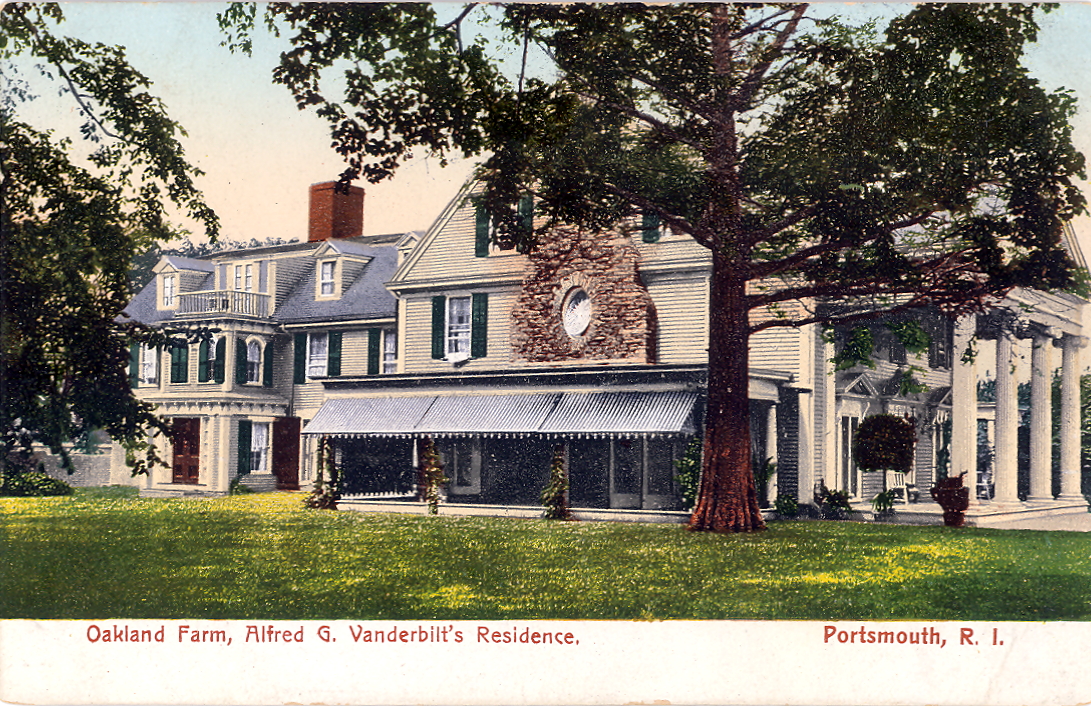
Oakland Farm
Portsmouth, RI
Nestled amidst the rolling hills of Portsmouth, Rhode Island, lies Oakland Farm, a property with a rich and fascinating history. Once owned by the Vanderbilts, this estate encompassed over 1,000 acres and housed a renowned Guernsey herd. The Vanderbilts even established a dairy, producing their own butter and cream.
The land comprising Oakland Farm was originally part of a 100-acre grant awarded to Thomas Cornell in the mid-17th century. Over time, ownership shifted through various hands, including prominent figures like William Ellery Channing, grandson of a signer of the Declaration of Independence. In 1867, the estate was acquired by August Belmont, a wealthy New York financier, who further expanded the property.
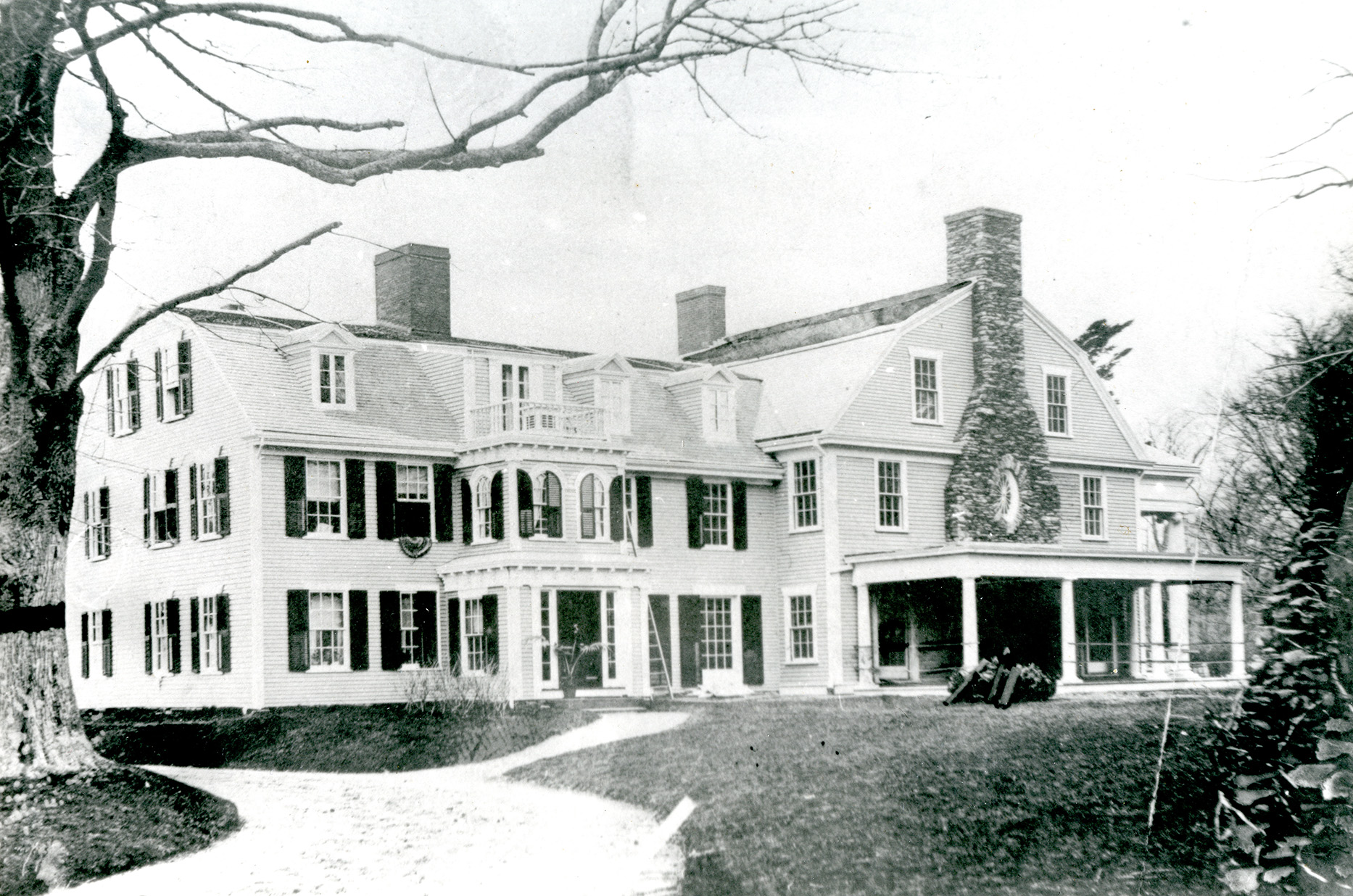
In 1886, Oakland Farm entered its most renowned chapter when Cornelius Vanderbilt II, a member of the famed American dynasty, purchased it. Vanderbilt, already established in nearby Newport with the opulent “The Breakers” mansion, envisioned Oakland Farm as a complementary estate.
Cornelius Vanderbilt II, known for his passion for horses, transformed Oakland Farm into a state-of-the-art breeding and training facility. He constructed new barns, stables, and paddocks, specifically designed for raising prized thoroughbred horses. These horses were not only used for personal recreation but also supplied other Vanderbilt estates, including The Breakers, with carriage horses.
Following Cornelius Vanderbilt II’s death in 1899, the estate passed to his son, Alfred Gwynne Vanderbilt. Sharing his father’s love for horses, Alfred further expanded the breeding operation and actively participated in horse shows. He also significantly improved the main residence, adding features like a bowling alley and a swimming pool, reflecting the grandeur of the Vanderbilt lifestyle. The estate served as a retreat for the family, offering a tranquil escape from the bustling social scene of Newport.
Following Alfred’s death in 1915, Oakland Farm passed through various trusts before ultimately being sold in the late 1940s. The extensive property was subdivided for residential development, and today, remnants of the once-grand estate can be found scattered throughout the neighborhood.
Glen Farm
Portsmouth, RI
Glen Farm, nestled in the peaceful landscape of Portsmouth, Rhode Island, has a remarkably rich history. Its narrative spans centuries and encompasses humble beginnings as a working farm, a transformation into a renowned “gentleman’s estate,” and finally, its present-day role as a public space. This 1,500-acre estate, once owned by the Taylor family, featured a French-style chateau and impressive dairy barns. Glen Farm was known for its herd of Ayrshire cattle, a prized breed.
The land comprising Glen Farm was first settled by European colonists in 1638, the same year Portsmouth was founded. These early settlers, seeking religious freedom, established a small agricultural community on the fertile land. Over the following century, ownership changed hands, with the property eventually falling into the possession of Halsey P. Coon, who operated a grist mill on the site.
In 1882, Henry A.C. Taylor, a successful New York businessman grew dissatisfied with the bustling summer scene of Newport and began acquiring farmland in Portsmouth. He envisioned establishing a working farm, a “gentleman’s estate,” where he could pursue agricultural endeavors. Taylor’s vision led him to purchase the land surrounding Coon’s grist mill, including two houses, barns, and corn cribs, totaling 111 acres. He continued acquiring surrounding agricultural parcels, eventually amassing over 1,500 acres.
Under Taylor’s ownership, Glen Farm transformed into a model of agricultural innovation and excellence. He constructed new barns, adopted scientific breeding practices, and focused on raising prized breeds of livestock. The farm included renowned herds of Guernsey cows, Percheron horses, and Horned Dorset sheep. Taylor’s dedication to record-keeping and meticulous documentation further solidified Glen Farm’s reputation as a leader in the field.
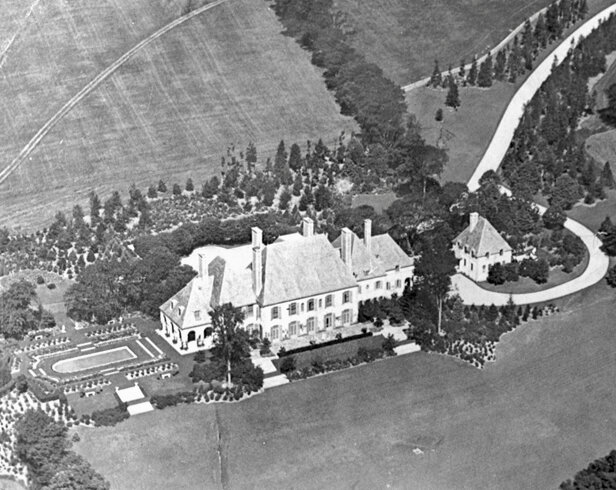
In the 1920s, Taylor commissioned the renowned architect John Russell Pope, known for designing the Jefferson Memorial in Washington, D.C., to build the Glen Manor House. This grand French-style chateau, overlooking the Sakonnet River, became a symbol of Glen Farm’s grandeur and served as the Taylors’ primary residence. Following Taylor’s passing in 1937, Glen Farm remained in the family until, slowly, portions of the land were sold off as the estate faced financial difficulties.
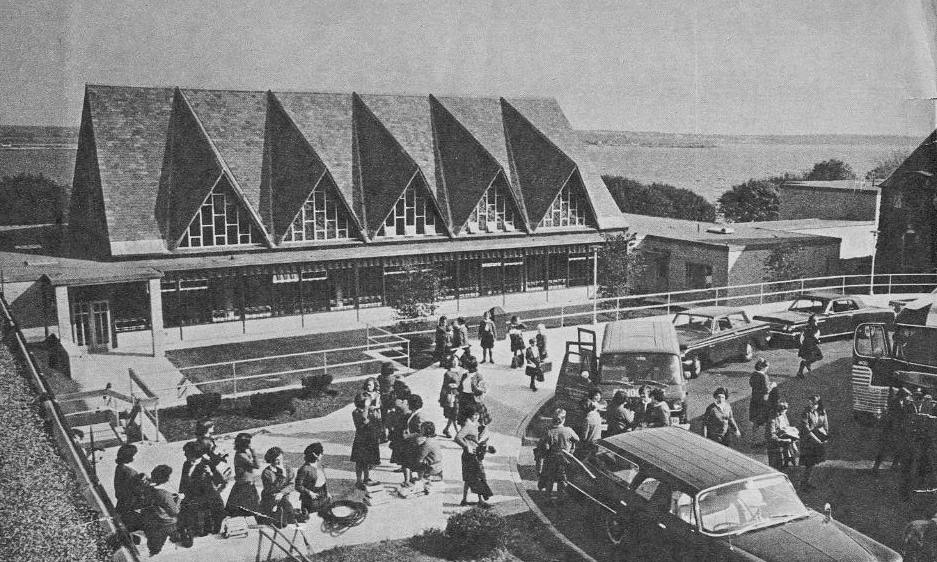
The Sisters of the Sacred Heart purchased the Glen Farm Manor House and 43 acres of the surrounding land in 1961 and ran a boarding school, Elmhurst Academy. They used the Manor House as a dormitory for boarding students and added classrooms, a chapel, a convent, and a dining hall to the property.
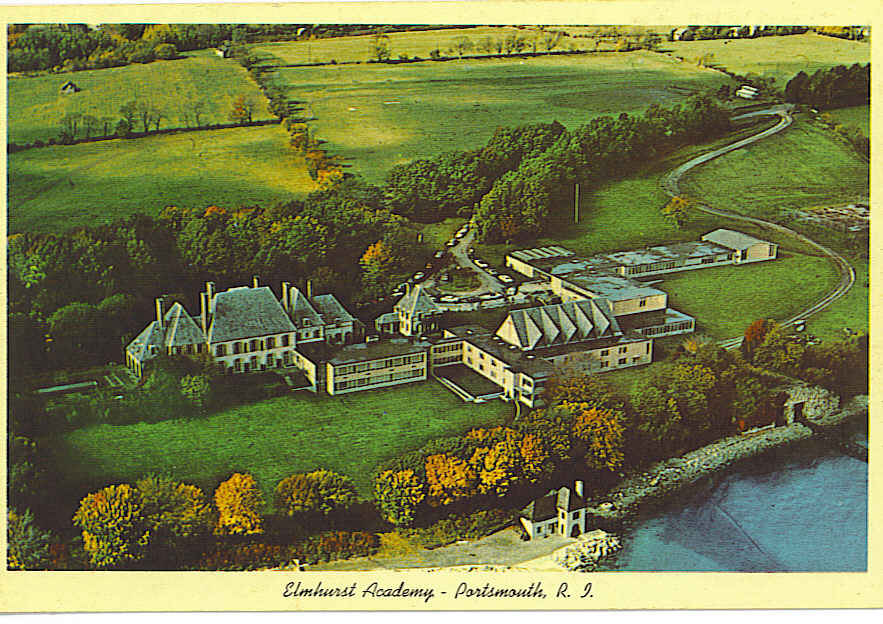
Elmhurst Academy operated at Glen Farm until 1972 when the school closed its doors. The Town of Portsmouth then purchased the property in 1973 and used the school building as Elmhurst Elementary School until that school was closed in 2010. The school building was eventually torn down in 2014, and the remaining portion of Glen Farm is now privately owned land and a public park known as Glen Park.
Sandy Point Farm
Portsmouth, RI
Sandy Point Farm, situated on the scenic shores of Portsmouth, Rhode Island, has a legacy steeped in equestrian history and intertwined with the prominent Vanderbilt family. Its story reflects the evolution of a working farm into a renowned horse breeding and training facility, leaving a lasting mark on the landscape of Portsmouth.
Ownership of the land comprising Sandy Point Farm can be traced back to the early 17th century when it was part of a larger tract granted to a local settler. Over the following centuries, ownership changed hands several times, serving primarily as a working farm and occasional summer retreat for various families.
Sandy Point Farm entered a new chapter when it was acquired by Reginald Claypoole Vanderbilt, son of the famed Cornelius Vanderbilt and brother of Alfred Gwynne Vanderbilt, also known for his vast estate, Oakland Farm, in Portsmouth. He was also the grandfather of CNN journalist, Anderson Cooper. Reginald, a passionate equestrian and horse breeder, envisioned transforming the property into a premier horse farm.
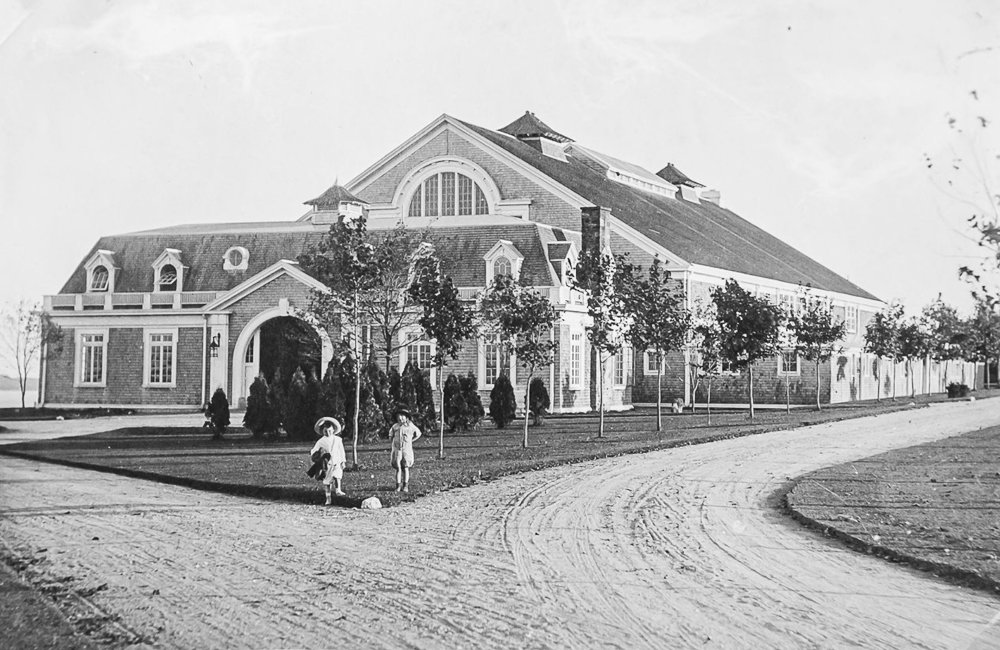
Reginald Vanderbilt hired architect A.S. Walker to design and construct the impressive stables that stand as a testament to Sandy Point Farm’s legacy today. Construction began in 1860 and would not be completed until 42 years later, in 1902. The complex featured 24 stalls, a vast 15,000-square-foot indoor riding arena, living quarters for grooms, and a dedicated guest lounge. The design incorporated Neo-Colonial elements, further highlighting its elegance and significance.
Under Reginald Vanderbilt’s ownership, Sandy Point Farm became a breeding ground for champion horses. He imported thoroughbreds and other breeds, establishing a reputation for excellence in the equestrian world. The farm actively participated in regional and national horse shows, further solidifying its status as a prominent player in the industry.
Following Reginald Vanderbilt’s passing in 1925, the farm continued its operation under various owners. However, its focus shifted from breeding to primarily housing horses for private use and training. The stables have been in continuous use until March 2023, when they were closed following the death of the owner. While the future of the stables remains uncertain, there are efforts underway to save the historic building.
Gentleman farms offered their owners more than just agricultural pursuits. They served as escapes from the pressures of city life, providing opportunities for leisure activities like horseback riding, hunting, and socializing with other members of the elite away from the public’s prying eyes.
While the era of the gentleman farm has faded, their legacy lives on in the grand estates and agricultural heritage of Portsmouth, RI. These unique properties offer a glimpse into a bygone era, where wealth and leisure intertwined with a touch of agrarian passion.
Find more details about how equestrian culture remains strong in Newport County on our blog.
If you’re interested in buying or selling a property in Newport, RI, or its surrounding communities, Hogan Associates Christie’s International Real Estate will gladly be your guide. Call us at (401) 680-6588 or send a message to info@hoganri.com.



